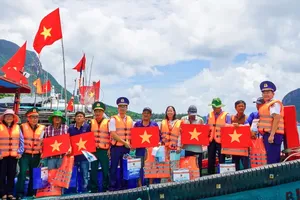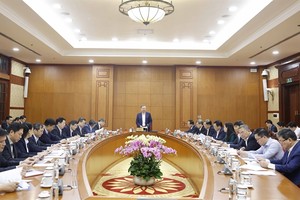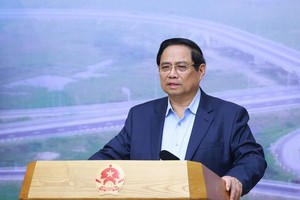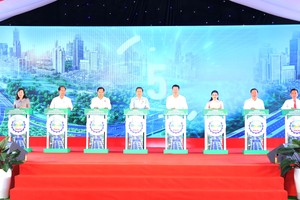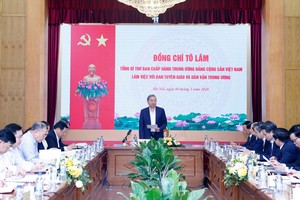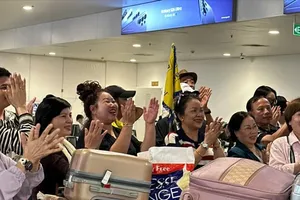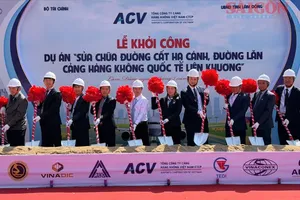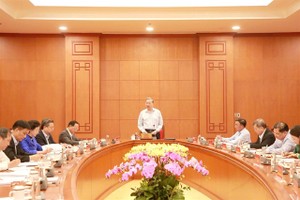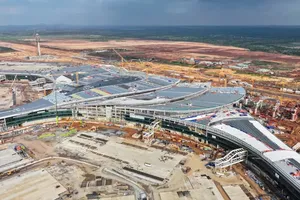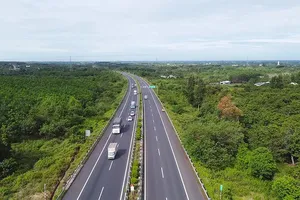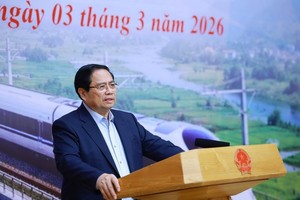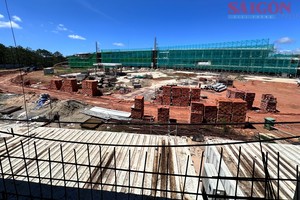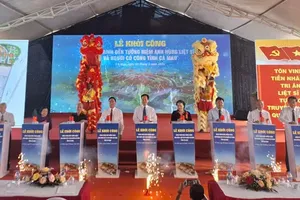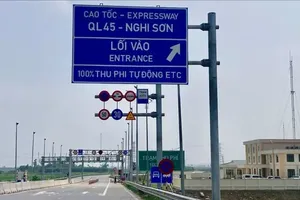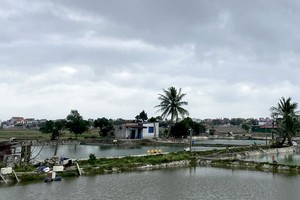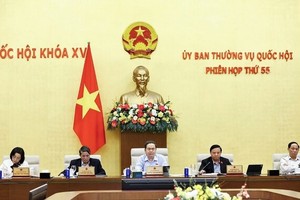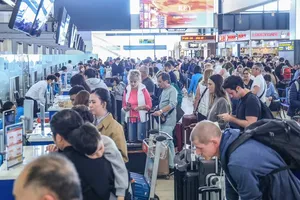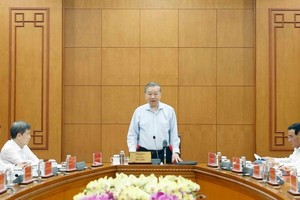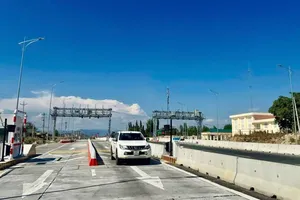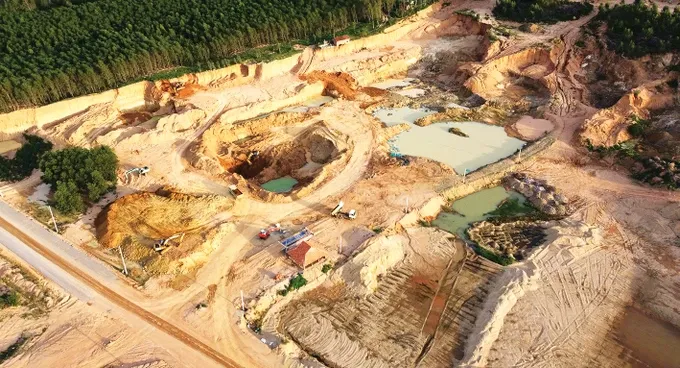
Local authorities in Thanh Hoa Province have taken swift action to address illegal mining at Dun Mountain in Ha Long Commune (Ha Trung District). Following reports of these activities, Chairman Do Minh Tuan of the Thanh Hoa Province People's Committee ordered an immediate halt to mining operations and directed relevant agencies to initiate procedures for protecting the historical and cultural site.
The Department of Natural Resources and Environment, in coordination with other departments and the Ha Trung District People's Committee, is compiling documentation to designate Dun Mountain as a temporarily prohibited mining zone. This proposal will be submitted to the provincial and central government for approval, aiming to safeguard the site's environmental and cultural significance.
Secretary of Tuyen Hoa District Party Committee (Quang Binh Province), articulated that the current 18 mineral deposits in the upper Gianh River region fall within the Ministry of Natural Resources and Environment's approved planning framework, precluding immediate suspension. He emphasized that from now on, they would categorically refuse to issue additional permits for any new mines while mandating heightened police surveillance to monitor extraction volumes and prevent environmental pollution at operational sites.
Regarding limestone mountains along the Gianh River through Tuyen Hoa District, in 2021, one quarry license from COSEVCO 1 Construction Materials Production JSC was revoked. The province had allocated tens of billions of VND in compensation to the enterprise to preserve the environmental landscape for white-cheeked langur habitation.
Chairman Pham Minh Tuan of the Binh Dinh Province People's Committee issued a directive on October 29 instructing the provincial Department of Natural Resources and Environment and Tay Son District People's Committee to verify information reported by SGGP Newspaper regarding illicit clay and stone extraction at Chop Vang Mountain (Tay Xuan Commune, Tay Son District), followed by strict punishment of illegal activities before November 10, 2024.
Deputy Director Tran Dinh Chuong of the Binh Dinh Province Department of Natural Resources and Environment articulated that his department would establish an inspection team to examine operations at the soil quarry on Chop Vang Mountain, the illegal soil mine at Son Trieu Mountain, and the soil extraction site serving the North-South Expressway project's eastern section from Hoai Nhon to Quy Nhon, operated by Phuc Loc Group JSC.
Regarding The Sang Trading Co. Ltd.’s quarry at Chop Vang Mountain, the department would dispatch a comprehensive inspection team to evaluate permits, design specifications, extraction volumes, operational timeframes and boundaries, environmental impact assessments, mineral utilization purposes, and transparency in extraction declarations.
Addressing the discrepancies in initial reserve assessments when licensing construction material quarries for the North-South Expressway project's eastern section from Da Nang City to Quang Ngai Province, Director Bui Ngoc Anh of the Quang Nam Province Department of Natural Resources and Environment acknowledged: “While mineral extraction permits stipulate stringent requirements for site restoration and mine closure, some investors have abandoned operations due to inefficiency. Consequently, local authorities must allocate budgetary resources for surface rehabilitation and environmental restoration.”
In Phu Yen Province, Mr. Huynh Kim Anh, Chairman of Chi Thanh Town People's Committee (Tuy An District), reported that following SGGP Newspaper’s investigative series, local authorities had deployed surveillance teams at Ba Mountain to apprehend violators in flagrante delicto. However, the perpetrators had temporarily ceased operations upon detecting the surveillance.
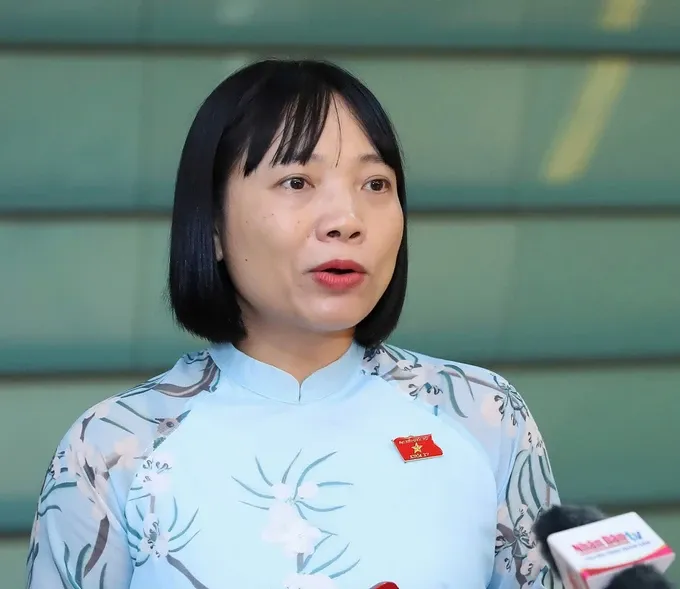
Deputy Head Nguyen Thi Viet Nga of Hai Duong Province's National Assembly Deputies Delegation, emphasized: “Vietnam's natural resources are finite, either non-renewable or requiring extensive regeneration periods. Without judicious calculation, resource extraction may yield immediate benefits while engendering severe long-term consequences. Remediation costs typically exceed initial extraction revenues multiple times over.”
She hoped that regulations related to resource exploitation will be closely linked to environmental protection, green and sustainable development. The legal system is quite comprehensive, so the problem lies in implementation. Localities, especially those with abundant resources, need to carefully calculate the exploitation and use of resources to ensure compliance with regulations and achieve maximum efficiency. Inspection and supervision activities also need to be strengthened.
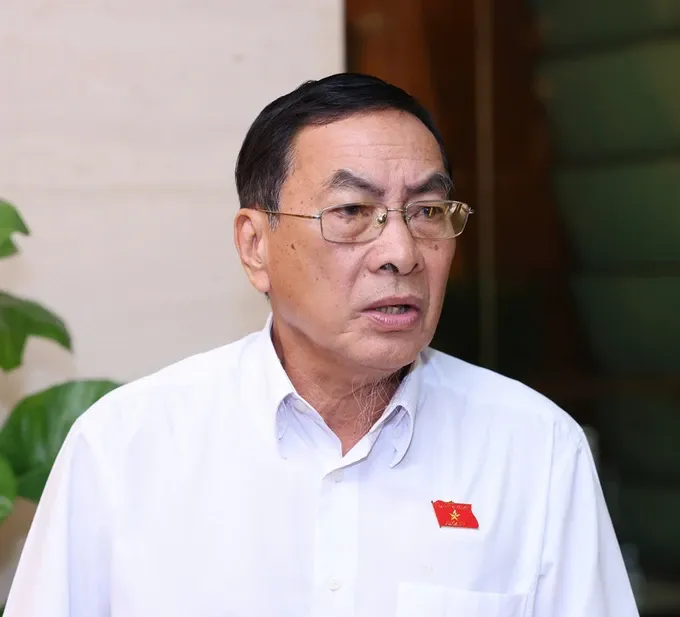
Pham Van Hoa, member of the National Assembly's Law Committee, asserted: “The unauthorized extraction of sand, soil, gravel, and stone in Central and Central Highland regions has been a persistent issue spanning years. Regulatory agencies must intensify enforcement measures to curtail these illicit activities.”
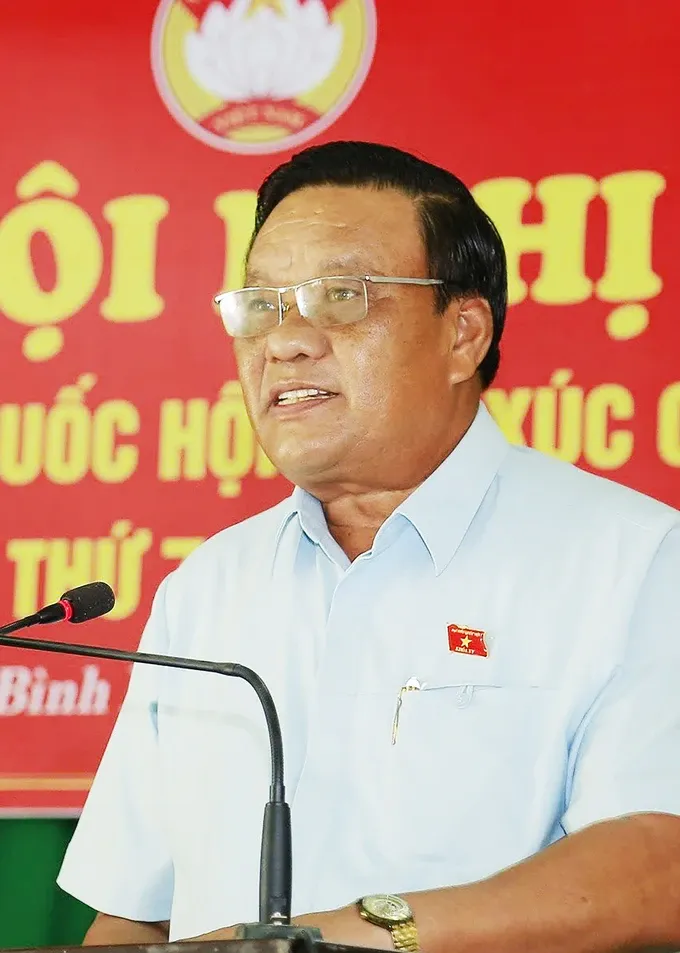
Head Le Kim Toan of Binh Dinh Province's National Assembly Deputies Delegation stressed the paramount importance of mineral exploration and extraction planning, particularly for construction materials, advocating careful evaluation of environmental, cultural, and religious factors to preserve invaluable heritage.
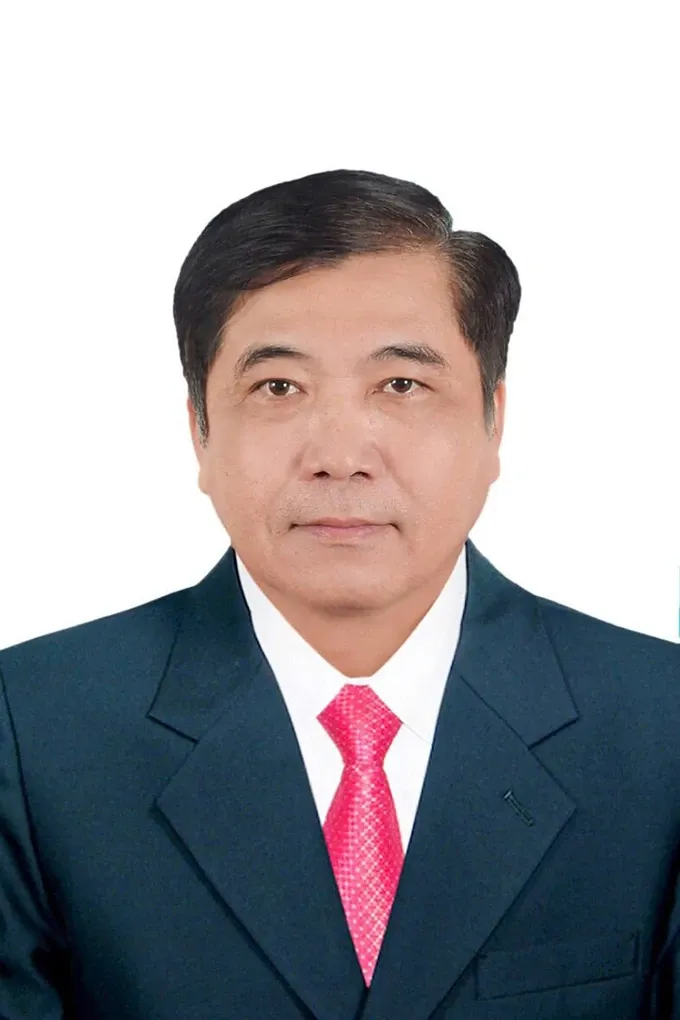
Standing Vice Chairman Doan Ngoc Lam of the Quang Binh Province People's Committee recommended that localities should develop scientifically-based resource utilization plans, incorporating both short-term and long-term considerations, while strengthening oversight mechanisms and promoting community engagement in resource protection initiatives.
